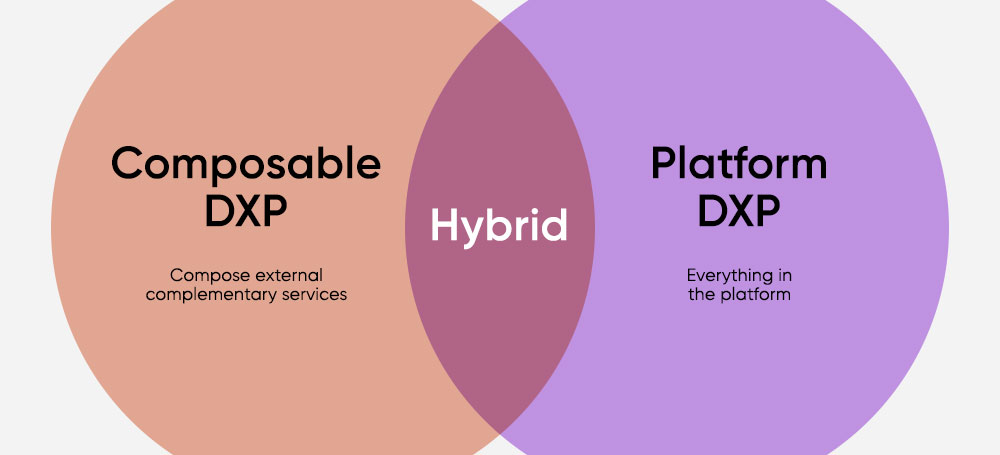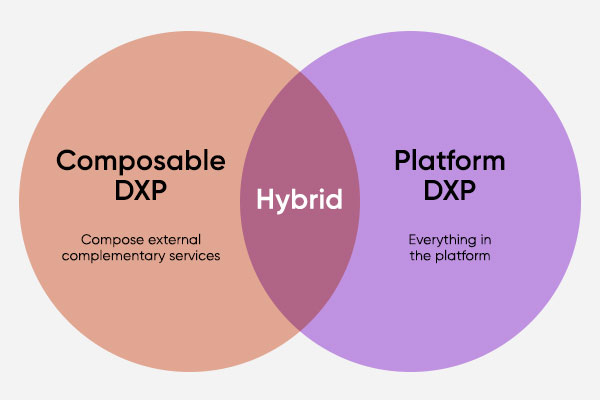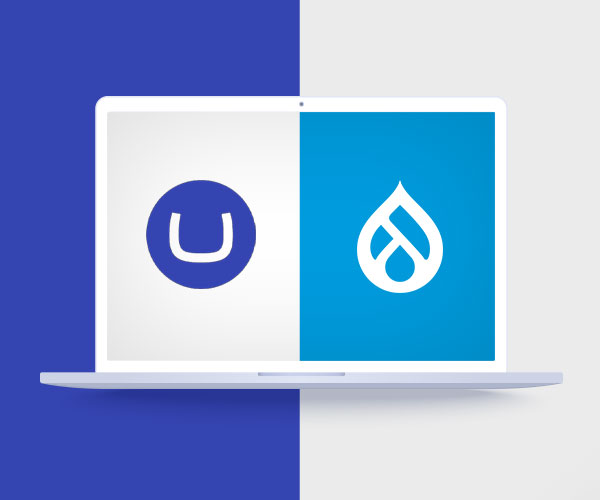In the digital realm, the business conversation used to be dominated by the distinction between SaaS solutions and all-in-one comprehensive digital experience platforms. Usually indicating the former as more future-proof and more practical. Apart from the fact that for fintech, the medical industry, and other sectors subject to strict regulations, using one on-premise solution has always made more sense, the growing popularity of composable architecture among DXP vendors seems to blur this dichotomy. The digital tool landscape is exploding with options, and savvy market leaders are stepping up, unleashing unprecedented customizability.
We recently wrote about the development plans of Umbraco - our partner and one of our favorite providers of digital platforms - toward full composability. To remind you what it's all about, composable digital experience platform suites consist of top-notch tools curated by the same provider and seamlessly connected through APIs, granting immense freedom for tailoring and personalization.
Composable, monolith, or hybrid - it's all about flexibility!
Lately, some chatter within the CMS communities has been sparked by a Forbes article that defends DXPs (which is not really necessary, in our opinion) against claims of obsolescence. The piece starts by pointing out two types of digital platforms - classic monoliths and modern systems composable with "best-in-class" external tools.
In fact, during the recent Codegarden conference, Umbraco's CTO highlighted the popularity of hybrid solutions, enabling companies to enjoy the best of both worlds. The agility of headless SaaS architecture with the familiar UX of a DXP. The ability to use some of the best out-of-the-box features while replacing some with external software.
You could say it's not about how composable but how decomposable the platform is. How much of the original packages can you use, and how much can you decouple and swap with "best of class" digital tools of your choice, like Hubspot, Zapier, Sendgrid, and others.
Umbraco decided to position itself as an ultimate CMS for composable DXP, offering complete command over your tech stack, the interplay between each component, and the scalability of your system. Smooth integrations and seamless connections with external tools, but still with many great built-in features available.
In the context of the rising popularity of composable architecture, how do other content management systems, which we occasionally compare with Umbraco, fare in comparison?
Umbraco vs. Drupal: Composable Strategy
Although based on a different PHP-based technology, Drupal is a popular market alternative to Umbraco, which also evolves toward composability. While it offers a high level of modularity and extensibility, a few factors can limit its potential as a genuinely composable solution.
First, its content composition approach is generally not as component-based as Umbraco and even some other CMS platforms. It lacks a dedicated system for creating reusable content components that can be easily combined and reused across different channels.
Second, more importantly, Drupal's module ecosystem is vast, offering a wide range of functionalities. However, some modules may have interdependencies, meaning that enabling or disabling one module can affect the functionality of others. This can make it challenging to swap out or replace modules without potentially disrupting the overall system.
It's clear that as a Certified Umbraco Partner, we prefer its solutions, but even objectively - if composability is the future of digital experience, as media as experts both seem to agree on - Umbraco is on its way to becoming one of the best solutions on the market.
If you need help with any Umbraco project or are interested in re-platforming, do not hesitate to schedule a free consultation with our Certified Umbraco Experts here.


 We recently wrote about the development
We recently wrote about the development 
 In fact, during the recent
In fact, during the recent 
